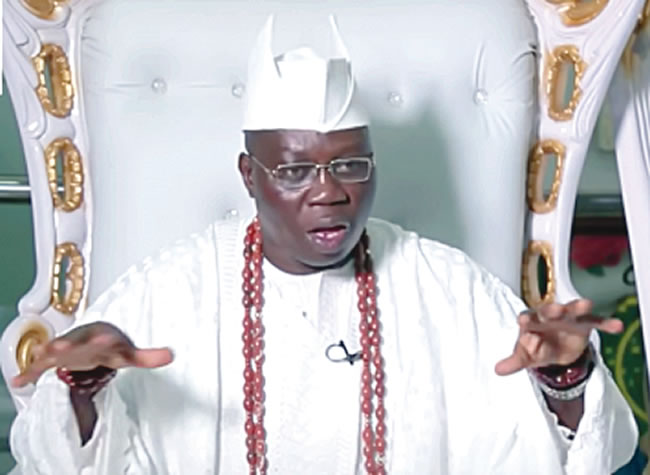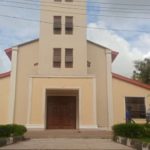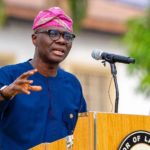Aare Onakakanfo of Yoruba land, Iba Gani Adams, on Sunday said it is no doubt that Nigeria’s democracy is yet to fulfil the lofty dreams of the late Aare MKO Abiola going by the present situation in the country.
Iba Adams raised this concern while speaking in Ikeja, Lagos at the commemoration anniversary of June 12, organized by the Oodua People’s Congress (OPC).
The Yoruba Generalissimo, who noted that the late Abiola’s victory at the 1993 elections came with lots of sacrifices as there were some heroes and heroines of that struggle that put their lives on the line for the actualisation of the June 12 struggle, however, said the last 22 years of democracy in the country had not been that fulfilling.
According to Adams, it is not fulfilling because there are issues that need to be resolved urgently, saying there was an urgent need for the citizens to renegotiate the existence of this country, adding that Nigeria’s federating units must be restructured into regionalism to allow the regions develop at their own pace.
“However, as one of the frontrunners of the June 12 struggle, I make bold as to say that the last 22 years of democracy have not been that fulfilling. It is not fulfilling because there are issues that need to be resolved urgently.
“Yes, I agree democracy all over the world is evolving. It is always a work in progress, however, there is an urgent need for us to renegotiate the existence of this country.
“Nigeria’s federating units must be restructured into regionalism to allow the regions to develop at their own pace,” he said.
“The 1963 constitution is clear about this,” he declared.
This was just as the Yoruba generalissimo warned that it was obvious that Nigeria might not survive the next three years as a nation, given the present situation in the country.
Adams said part of the problems of today’s democracy revolves around the electoral processes and the attitudes of the country’s politicians, adding that as of today, Nigeria is divided along religious and ethnic lines, while insecurity remained a big challenge across the nation.
“With the present situation in the country, it is obvious that Nigeria may not survive the next three years as a nation
“For instance, part of the problems of today’s democracy revolves around the electoral processes and the attitudes of our politicians.
“Today, Nigeria is divided along religious and ethnic lines. Insecurity remains a big challenge across the country. The attack on worshippers in Owo last Sunday was nothing but premeditated,” he said.
“I condemn the attack totally. The attackers had their way when there was no structure to take care of the security architecture.
“Unfortunately, the Owo attack truly showed how helpless the Nigerian police are in combating crimes.
“In its report, the Federal Government allegedly said ISWAP was behind the attack. Ondo State government was also accused of being culpable in the attack.
“Enough of all these blame games within the hierarchies of both the state or Federal governments.
“Issues relating to the security of lives and property should not be politicised,” he added.
Iba Adams’s June 12 story was truly phenomenal in nature, pointing out that reflected the will of the people to take their destiny into their own hands.
Besides, he posited that June 12 was a victory that knew no tribe or religion, describing it as “boundary-less because even both the Hausa and the Igbo supported the cause of the victory.”
“The presumed winner of June 12, 1993, election and my predecessor, Aare MKO Abiola, became the symbol of the historic victory that ushered in this democracy.
“The annulment of the June 12 election that was widely acclaimed as the freest and fairest election in the history of Nigeria was a sad reminder of those years in the struggle.
“It was a battle between justice and injustice. It was actually a political contest for the soul of Nigeria between the military junta of President Ibrahim Babangida and all pro-democracy groups. It was that very struggle that led to the formation of Oodua People’s Congress (OPC) in 1994,” he recalled
The Guest Lecturer, Professor Ayo Olukotun from the Department of Political Science, Olabisi Onabanjo University, Ago-Iwoye, Ogun State, in his lecture titled: “June 12: Making Regionalism an effective Panacea for Nigeria’s problem,” restated the need for regionalism.
Olukotun maintained that Nigeria’s problem can only be solved when all the regions that make up the country were allowed to develop at their own pace, saying that what existed in the country now could be described as feeding bottle federalism.
“What we have in Nigeria is feeding bottle federalism. And with this, Nigeria has undertaken a race to the bottom. Therefore, if the memory of Abiola was truly honoured, we would have progressed from this journey.
“The late Abiola in his life had a clear idea of what Nigerians wanted. Had he not been martyred, Nigeria would have turned out to be the country we will all be proud of.
“Therefore, until Nigeria returns to the fundamental reason for which the country was established, the country’s dreams might be a mirage,” he argued.
Other guests present at the event include: Parakoyi Aare Onakakanfo of Yoruba land, Prof. Raheem Kolawole; Osi Aare Onakakanfo of Yoruba land, Chief Kayode Balogun; Atoloye Aare Onakakanfo of Yoruba land, Chief Babajide Tanimowo; Chief Segun Ajiboye, Coordinator of Oodua Progressive Union in America, Yeyeluwa Alice Eniola.
Others were Special Adviser to the president of the Igbo Speaking Community, Elder Chima Akomas; Chief Mrs Esther Oyebola; Yeye Opeluwa of Yoruba land, Amb. Muyiwa Osinaike; Comrade Ibrahim Lawal, Alhaji Davids and Chief Adeola.
Other social-cultural groups present include Southwest Security Stakeholders Group (SSSG), and the Igbo Speaking Community (Lagos), among others.
IN CASE YOU MISSED THESE FROM NIGERIAN TRIBUNE
- Revealed! Details Of South-West APC Leaders Meeting With Presidential Aspirants
- Supreme Court Has Cleared Civil Servants To Participate In Politics, Falana Tells FG
- Battle For New Alaafin Begins As Ruling Houses Insist On Producing Next Oba
- Court Admits More Evidence Against Alleged Fake Army General, Bolarinwa
- I’m Every Man’s Choice Now, My DM Is Crazy —Eniola Badmus
- It Is Now Bye To Decency: Crazy Fashion Trends At Owambe Parties






